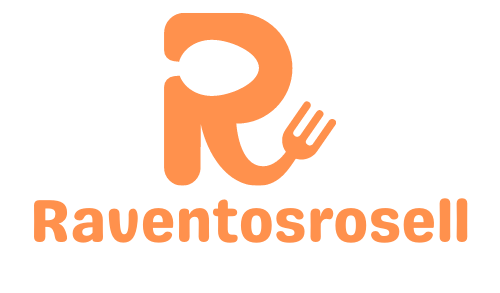Powdered egg products have revolutionised food production across numerous sectors, offering significant advantages over their fresh counterparts while maintaining nutritional integrity. From bakeries to ready meal manufacturers, these versatile ingredients have become essential components in modern food processing operations. The transformation of liquid eggs into stable, long-lasting powder forms has solved many challenges faced by food producers worldwide.
Extended shelf life and storage advantages
One of the most compelling benefits of powdered egg products in commercial food production is their remarkably extended shelf life. While fresh eggs typically last only a few weeks under refrigeration, properly stored powdered egg products can remain viable for up to 36 months when kept in appropriate conditions. This dramatic extension of usability drastically reduces the frequency of inventory replacement and minimises the constant concern about perishability that accompanies fresh egg usage.
Reducing waste with longer 'use by' dates
The food service industry faces constant pressure to minimise wastage, and powdered egg products offer a significant advantage in this regard. Their substantially longer 'use by' dates mean that businesses can confidently maintain inventory without the risk of spoilage that fresh eggs present. This predictability allows for more efficient ordering cycles and reduces the frequency of emergency restocking that often occurs when fresh ingredients unexpectedly deteriorate before use.
Space-efficient storage without refrigeration requirements
Storage efficiency represents another substantial benefit for food manufacturers. Powdered egg white occupies considerably less space than its natural equivalent, allowing producers to maximise storage capacity. More importantly, these products eliminate the need for refrigerated storage space, which is both expensive to maintain and often limited in commercial kitchens. The ability to store these ingredients at ambient temperatures between 15-25°C in dry conditions away from light means they can be kept in standard storerooms, freeing valuable refrigeration space for truly perishable items.
Cost efficiency and logistics
The economic advantages of using powdered egg products extend well beyond their purchase price. When conducting a comprehensive cost analysis, food producers must consider numerous factors that affect the true cost of ingredients. Powdered eggs create significant savings through multiple channels that might not be immediately apparent when simply comparing unit prices.
Lower transport and handling expenses
Transportation costs represent a substantial portion of ingredient expenses, especially for fragile items like eggs. Powdered egg products are significantly lighter and more compact than their shell counterparts, allowing more product to be moved in each shipment. The elimination of special handling requirements for fragile goods further reduces logistics expenses. Additionally, these products do not require refrigerated transport, which can cost substantially more than standard shipping. This combination of factors creates meaningful cost reductions that improve overall profitability.
Minimising wastage-related financial losses
Financial losses due to ingredient wastage can severely impact profitability in food production. Powdered egg products help mitigate these losses by virtually eliminating spoilage concerns. Furthermore, these products allow for precise measurement and usage, meaning manufacturers can use exactly what they need for each production run without leftover partial quantities that might go unused. This precision eliminates the common scenario where the odd egg or two from a carton remains unused and eventually spoils, creating cumulative financial wastage over time.
Quality consistency in food production
Consistency represents a fundamental requirement for commercial food production, where consumers and clients expect identical products with each purchase. Powdered egg products deliver remarkable uniformity that fresh eggs simply cannot match, making them invaluable for manufacturers who require dependable performance.
Standardised ingredient performance
Every batch of professionally produced powdered egg products undergoes strict quality control procedures, ensuring consistent protein content, functional properties, and performance characteristics. This standardisation eliminates the natural variations found in fresh eggs, which can differ in size, yolk-to-white ratio, and protein structure depending on factors like hen age, diet, and season. For food manufacturers, this translates to fewer adjustments during production and more reliable final products.
Predictable results in recipe development
Product development teams particularly value the predictability of powdered egg products when formulating new recipes. The consistent performance of these ingredients allows for more accurate projections of how formulations will behave in full-scale production. Unlike fresh eggs that might perform differently from batch to batch, powdered eggs deliver the same functional properties time after time. This reliability streamlines the development process, reduces testing iterations, and helps bring new products to market more efficiently.
Versatility in food applications
 The remarkable adaptability of powdered egg products makes them suitable for a wide range of food manufacturing applications. Their diverse functional properties allow them to serve multiple purposes across different food categories, making them essential ingredients in many commercial kitchens and production facilities.
The remarkable adaptability of powdered egg products makes them suitable for a wide range of food manufacturing applications. Their diverse functional properties allow them to serve multiple purposes across different food categories, making them essential ingredients in many commercial kitchens and production facilities.
Usage in Bakery and Confectionery Products
In bakery applications, powdered egg products serve crucial functions as emulsifiers, raising agents, and stabilisers. They contribute to proper structure formation in cakes, cookies, and bread products while helping achieve the desired texture and mouthfeel. Confectionery manufacturers similarly rely on these ingredients for their ability to create stable emulsions and contribute to product structure. The precise control possible with powdered ingredients allows bakers to adjust formulations with greater accuracy than when using fresh eggs, resulting in more consistent products.
Applications in Sauces and Ready-to-Eat Meals
Ready meal manufacturers and sauce producers have embraced powdered egg products for their binding and thickening properties. These ingredients help create stable emulsions in sauces and dressings while contributing to the desired mouthfeel and texture. In prepared meals, they serve as effective binders while adding nutritional value through their high protein content. The pasteurisation process these products undergo also contributes to the extended shelf life of the final products, an essential consideration for ready-to-eat items.
Food safety enhancements
Safety concerns represent a significant challenge when working with fresh eggs in commercial food production. Powdered egg products offer substantial advantages in this area, helping manufacturers maintain high safety standards while reducing contamination risks.
Pasteurisation benefits and pathogen reduction
All commercial powdered egg products undergo rigorous pasteurisation as part of their production process, effectively eliminating harmful pathogens like Salmonella that may be present in raw eggs. This pasteurisation occurs prior to the spray-drying or freeze-drying process, ensuring that the final product is microbiologically safe. For food manufacturers, this means significantly reduced concerns about foodborne illness associated with egg products, particularly important in applications where complete cooking might not occur.
Mitigating cross-contamination risks in commercial kitchens
Commercial kitchens face constant challenges in preventing cross-contamination between different ingredients. The handling of fresh eggs presents particular concerns due to the potential presence of pathogens on shells. Powdered egg products eliminate this risk entirely, as they require no cracking or shell handling. This removal of a major contamination vector simplifies food safety protocols and reduces the need for separate handling areas or equipment for egg processing, streamlining production while enhancing safety.
Economic benefits beyond purchase price
When evaluating the true economic impact of ingredients, food manufacturers must look beyond simple unit costs to understand the comprehensive financial implications of their choices. Powdered egg products offer substantial economic advantages that might not be immediately apparent but significantly impact the bottom line.
Total cost analysis compared to fresh eggs
A comprehensive cost comparison between fresh eggs and powdered alternatives must account for numerous factors beyond purchase price. When calculating true costs, manufacturers should consider storage requirements (including refrigeration expenses), transportation costs, wastage rates, and inventory management complexity. Powdered egg products typically outperform fresh eggs in all these categories, offering lower total ownership costs despite sometimes higher initial purchase prices. For large-scale operations, these cumulative savings can represent significant improvements to profitability.
Labour Savings in Preparation and Processing
The labour requirements associated with fresh egg handling can be substantial in commercial settings. Staff must crack, separate, and process eggs manually or using specialised equipment, all while maintaining strict food safety protocols. Powdered egg products eliminate these steps entirely, requiring simple measuring and rehydration instead of labour-intensive processing. This reduction in preparation time translates directly to labour cost savings and allows staff to focus on more value-added activities. For operations of all sizes, these efficiency improvements contribute meaningfully to operational profitability while simplifying production processes.

